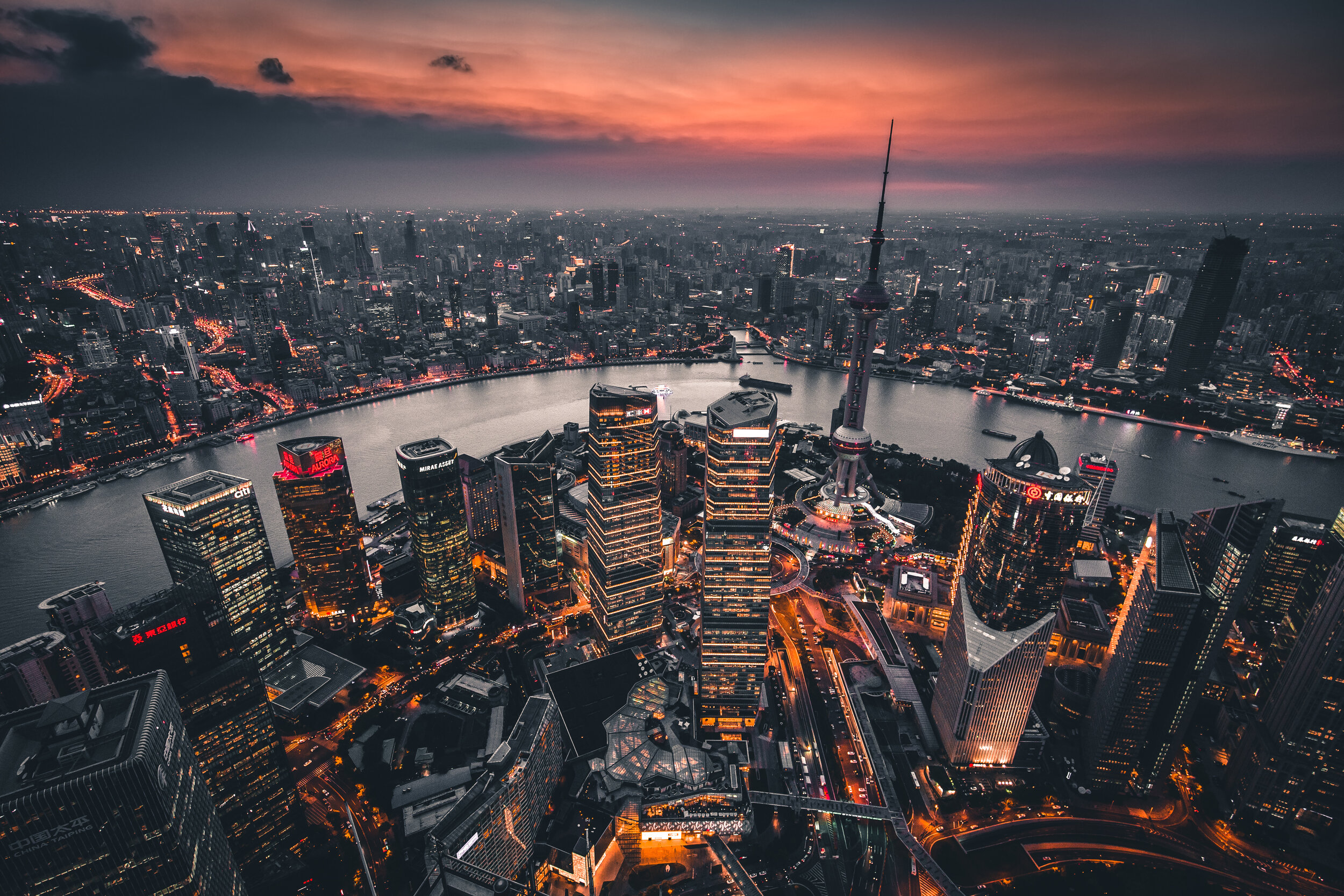This article first appeared in Life in the Gospel, the new quarterly from Redeemer Presbyterian Church in New York City, and is republished here with permission.
LATE JANUARY: In an unassuming corner of one of China’s most important cities, 20 people, all wearing face masks, recently met for the first time in a rented room. In the corner, an open laptop showed 30 faces calling in. This was the launch of Pastor Hu’s new church.
“Death is real, but the resurrection is even more real,” Pastor Hu said. His next words, though, showed the strain felt so piercingly in Covid-19 China: “This is no sermon, but a terminally ill survivor telling another patient where the vaccine is.”
In late January, the Chinese government quarantined the entire city of Wuhan, a central Chinese city with a population of 11 million, in a desperate attempt to halt the coronavirus, now known as Covid-19. Since then, China has struggled to contain the virus’s spread so much so that even thousands of miles away, Pastor Hu’s city lies in the grip of the disease.
In the light of Covid-19, does China really need a new church at this moment? Surely, one might think, there are dozens of more important steps Christians in China might be taking to serve those around them. Yet, in the midst of his city and country’s suffering, Pastor Hu decided to forge ahead with his church’s long-planned February launch. Was it the right call?
Never miss a story
>
”Despite the ordinary persecution Chinese believers face and the extraordinary obstacle they now endure in the pandemic, Hu is convinced “church planting is the best way to fulfill God’s plan.”Never miss a story
Sign up to receive our weekly email with our original articles.
Pastor Hu believes the pandemic and its hardships showcase the need for more communities faithfully witnessing to God’s presence, righteousness, and love. “It is precisely in these difficult times that we need all the more to preach the word of God,” he said. Times of trial call for speaking with others about the Bible with even more passion than usual, “so that we may ‘deliver those who through fear of death were subject to slavery all their lives’ (Hebrews 2:15). God’s word must be preached in a manner that is undaunted by death.”
Inside China, people are cut off from one another and from much of the world. The Chinese church believes God has not abandoned them, but is with them in their isolation. “In the face of disaster, what we need is not to hide in our homes to wait for the pandemic to pass,” he says. Instead, Christ-followers should show others why Jesus’s willing sacrifice is good news for them, especially in a time of national tragedy.
The decision to continue with the church plant was covered in prayer. A week before his church launched, members of his plant began meeting each morning in an online chat room to pray. They have continued daily meetings since the church started.
Prayer was also central to a different decision made just weeks earlier. The day before the government quarantined Wuhan, Hu had to inform various Wuhan church leaders they would be unable to participate in a Christian conference taking place outside of mainland China. This conclusion was made after an online prayer meeting between conference organizers and the believers from Wuhan. “It was a painful process thinking about whether it was right or wrong for them to stay in the city,” he shared. “To an extent, I even doubted if God’s presence was with us while we were praying.”
Yet there was evidence of God’s hand in the timing of the conference, which would have been canceled entirely had it occurred even one day later. And God’s hand was in the decision to require Wuhan brothers and sisters to stay where they were before the government quarantined the city. Not one case of the virus was found among the many conference attendees. “I experienced a God who does great things in little places. God is a giver of many blessings. He not only challenged our faith and tested our loyalty, but also gave each [conference] participant the opportunity to bear their own share of responsibility, each making their own decision about whether to attend [the conference] or not, deciding how they could love both God and their neighbors. My faith took a great leap upward through the experience,” Hu said.
Pastor Hu has leaned on the personal renewal he experienced at the conference as he forges ahead with his church plant. In disregard to the risks to their own physical health, conference speakers preached on topics of suffering and resurrection, affirming Hu in his understanding of what it means to follow God. “The faithful decision would be to do everything we could so that the preaching of God’s word would not be hindered — and then to prepare for the worst.” That same logic has been applied to beginning his church in the midst of the coronavirus outbreak. The tenor of the conference was bluntly stated by one of its speakers: “Christians should not be afraid of death. Death should be afraid of Christians.”
Despite the ordinary persecution Chinese believers face and the extraordinary obstacles they now endure in the pandemic, Hu is convinced “church planting is the best way to fulfill God’s plan.” No one knows what the situation with the pandemic will be like tomorrow, he said, and no one knows what persecution will look like after it. Beginning a new church remains the best embodiment of God’s grace to the city, even as physical suffering is undeniably real. When the gospel is proclaimed, “there really cannot be any worst outcome. The good news is preached. Can anything bad happen?”
This does not mean we ignore pain and distress. It does no good to wish a person well if you do not care for her bodily needs. This starts simply. Pastor Hu has encouraged his congregants to have eyes for the needs of others, whether it means helping their neighbors buy groceries or handing out masks (currently difficult to obtain in China) to street workers and delivery people. Even before Covid-19, his church had a budget for mercy and justice ministry, and Hu anticipates that the needs brought about by the pandemic will continue for a long time to come. Already, he has had attendees who lost their jobs because of the economic impact of the virus. “We want to share the full gospel — the incarnation, the cross, the resurrection — and also to show people how we can live,” he said.
>
”Already he has had attendees who lost their jobs because of the economic impact of the virus. ‘We want to share the full gospel — the incarnation, the cross, the resurrection — and also to show people how we can live…’”
Practical measures are necessary as the church confronts contagious disease, and believers must do all they can to be wise custodians of the realities they face. Even as Pastor Hu’s church began meeting weekly in a physical space, he also spread word about the church plant’s virtual webcast. The church clarified policies on who should remain at home (for instance, those who have traveled to heavily-impacted areas or have reason to believe they came in contact with someone who has Covid-19), and issued guidelines on measures worshippers should take: wearing masks, physically spreading out around the room, and keeping any children with their parents.
There have been more online worshippers than in-person participants in the first few weeks of Pastor Hu’s new church. God has used these provisional arrangements to expand his kingdom, as Christians sequestered in apartments share with unbelieving family members. One member wrote, “Praise the Lord, my parents — who do not believe –— finally heard the gospel [watching] with me at home.” Pastor Hu is thankful for the technology that makes this possible, but eager for the day it is no longer necessary. “As Paul writes in his letter to Timothy, ‘I long to see you’ (2 Timothy 1:4). Webcasting is temporary; fellowship in person is what we really desire.”
Covid-19 has abruptly halted normal life across China. While he expected the new church to face adversity, the coronavirus calamity was unforeseen. But Pastor Hu believes this is God’s plan to build his church: “Even in the Bible, we rarely see churches built up in peaceful and prosperous times, because people do not find the gospel precious in those kinds of times.” Yet Pastor Hu sees God’s hand as he lays down his own plans and embraces the Lord’s providence for himself, his family, and his church. “I believe God is shaping me to have a servant’s heart,” he said, “through this uncomfortable grace.”

More COVID-19 Resources
We’ve put together a special page devoted to ways we can learn from, love, and pray alongside our Chinese brothers and sisters during the coronavirus pandemic.
































